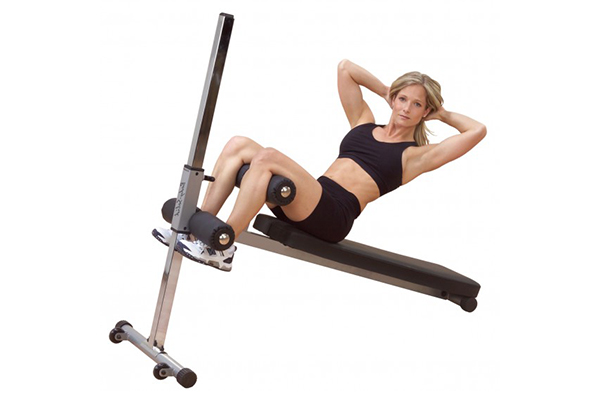Sleeping with an Abdominal Board: Comfort or Compromise?
In the pursuit of a sculpted physique, countless individuals turn to abdominal exercises and equipment. One such tool gaining popularity is the abdominal board, a rigid board designed to support the back and intensify core workouts. But does this intense workout translate to a restful night’s sleep? Let’s delve into the world of abdominal boards and explore whether they’re a boon or bane for sleep.If you want to buy abdominal board, you can consult us. Hongxing is a company specializing in selling commercial fitness gym equipment.

Unveiling the Pros and Cons:
Like any fitness tool, the abdominal board comes with its own set of advantages and disadvantages:
Pros:
- Improved posture: The board helps maintain proper spinal alignment during sleep, potentially alleviating back pain and promoting better posture throughout the day.
- Enhanced core strength: While sleeping, your abdominal muscles engage to maintain your position on the board, potentially leading to long-term strengthening.
- Reduced snoring and sleep apnea: The elevated position of the upper body may help open up airways and reduce symptoms for individuals with snoring or sleep apnea.
Cons:
- Discomfort and pain: The rigid surface of the board may be uncomfortable for some, leading to sleep disruptions and muscle soreness.
- Increased pressure on specific areas: Sleeping on a hard surface can put strain on pressure points, causing discomfort and potentially hindering blood circulation.
- Limited flexibility and movement: The board restricts natural sleep movements, potentially leading to restlessness and disrupting sleep quality.
Finding Your Sweet Spot:
Ultimately, the decision to sleep on an abdominal board comes down to individual preference and needs. Consider these factors:
- Your comfort: If the board feels uncomfortable or causes pain, it’s best to avoid using it for sleep.
- Your existing health conditions: Individuals with pre-existing back issues or pain should consult a healthcare professional before using an abdominal board.
- Your fitness goals: If you’re looking to strengthen your core, using the board for short periods during the day may offer benefits without compromising sleep quality.
Instead of relying solely on an abdominal board, consider these alternatives:
- Firm mattress: A firm mattress can offer some of the same benefits as the board, providing support for your spine and aligning your posture.
- Sleeping pillows: Proper neck and back support pillows can help maintain proper alignment and reduce discomfort during sleep.
- Stretching and exercises: Regularly stretching and engaging in core strengthening exercises can improve posture and core strength without sacrificing sleep comfort.
Remember, a good night’s sleep is crucial for overall health and well-being. Prioritize your comfort and listen to your body’s signals when making decisions about sleep tools and practices.
FAQs:
Q: Can I use an abdominal board to improve my sleep quality?
A: While the board may offer some potential benefits for sleep posture and snoring, its impact on sleep quality depends on individual comfort and needs.
Q: Are there any risks associated with sleeping on an abdominal board?
A: Sleeping on a hard surface may lead to discomfort, pain, and pressure points for some individuals. Additionally, it can restrict movement and disrupt natural sleep patterns.
Q: What are some alternative options for improving sleep posture and core strength?
A: A firm mattress, supportive pillows, regular stretching, and core strengthening exercises can all contribute to better sleep and a stronger core.
Make informed decisions, prioritize comfort, and remember that a healthy sleep routine is key to your overall well-being.
Post time: 12-13-2023



